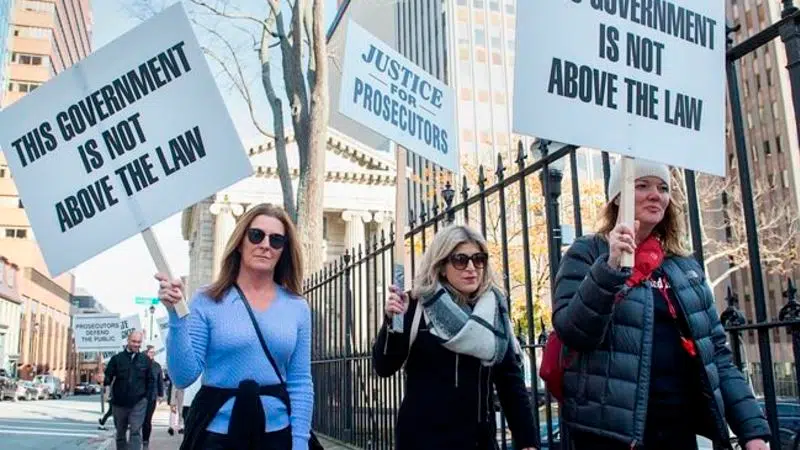
N.S. government to return to talks with Crowns, as controversial law paused
HALIFAX — Nova Scotia’s Liberal government held off Friday on enacting legislation that would have put striking Crowns back to work, promising to return to talks in a dispute that’s disrupted the province’s justice system.
Bill 203 passed into law late in the day, but Justice Minister Mark Furey says it isn’t being proclaimed and the province will resume negotiations with the Nova Scotia Crown Attorneys’ Association.
“We will not proclaim the bill. We will immediately go back to the negotiating table and work towards a solution,” the minister said.
Furey added he believes the parties can “work towards a negotiated settlement,” though a day earlier he’d accused prosecutors of putting their personal financial interests ahead of the needs of crime victims.
